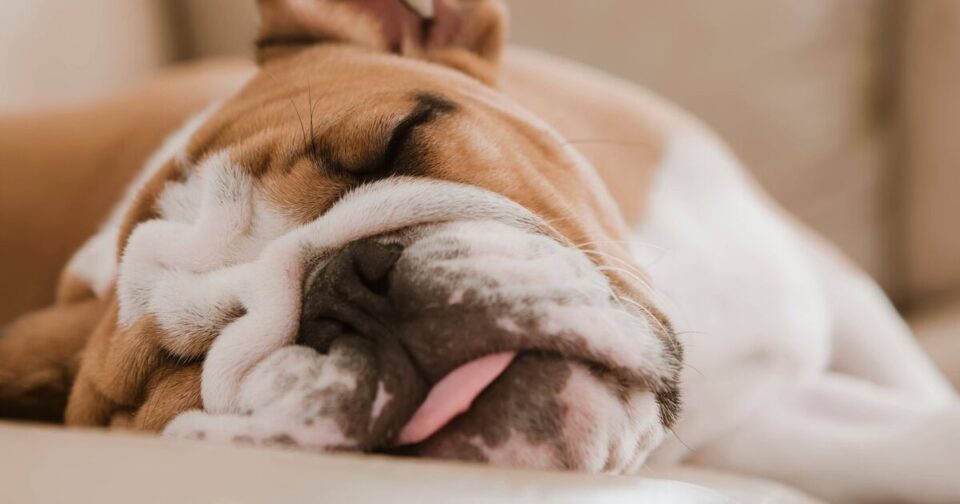Dog owners are being warned against waking up their pets if they notice one common characteristic.
A vet said that while dogs may shows signs of being troubled during their sleep, it’s best to let them be.
The Spanish vet, known as María VetiCan on social media, told pet owners it was normal for dogs to twitch, whimper, or even bark in their sleep.
The expert urged others not to let concern lead them to interrupting their pets’ rest. She said it was all part and parcel of a dog’s sleep cycle – completely routine and no cause for distress.
Just as with people, dogs experience various stages of sleep, including the critical Rapid Eye Movement (REM) phase, where the magic of dreaming happens. It’s during this time that dogs, just as human sometimes do, might exhibit involuntary twitches or noises.
These reactions can simply be natural reactions to what pups might be encountering in their dreams, explains the vet. Rather than distress, they could be experiencing sweet dreams, such as frolicking in meadows.
In a post on her TikTok account, Maria explained: “If you see your dog doing this or this, I know it’s very tempting, but don’t wake him up. Dogs, just like us, have sleep phases. In the REM phase, dreams take place and therefore, it is very normal for them to make sounds or move in response to those dreams, but it does not have to mean that they are uncomfortable or having a nightmare.”
She warned that forcing a dog awake could disrupt their essential rest, potentially affecting their health and wellbeing. Such disturbance might not only jolt a dog but could also lead to confusion or agitation due to the sudden disruption.
She added: “In fact, if we wake up our dog at that moment, we may cause confusion or irritability. Let your dog sleep peacefully. I’m sure it’s running through a green field full of pigeons.
The American Kennel Club explained that dogs’ sleeping patterns a very similar to those of humans, with one significant difference.
It takes approximately 10 minutes for dogs to enter REM sleep after falling asleep, which is a crucial stage of rest.
However, they only spend about 10% of their time in this state because of their sporadic sleeping patterns and need more total sleep to make up for the lost REM.

